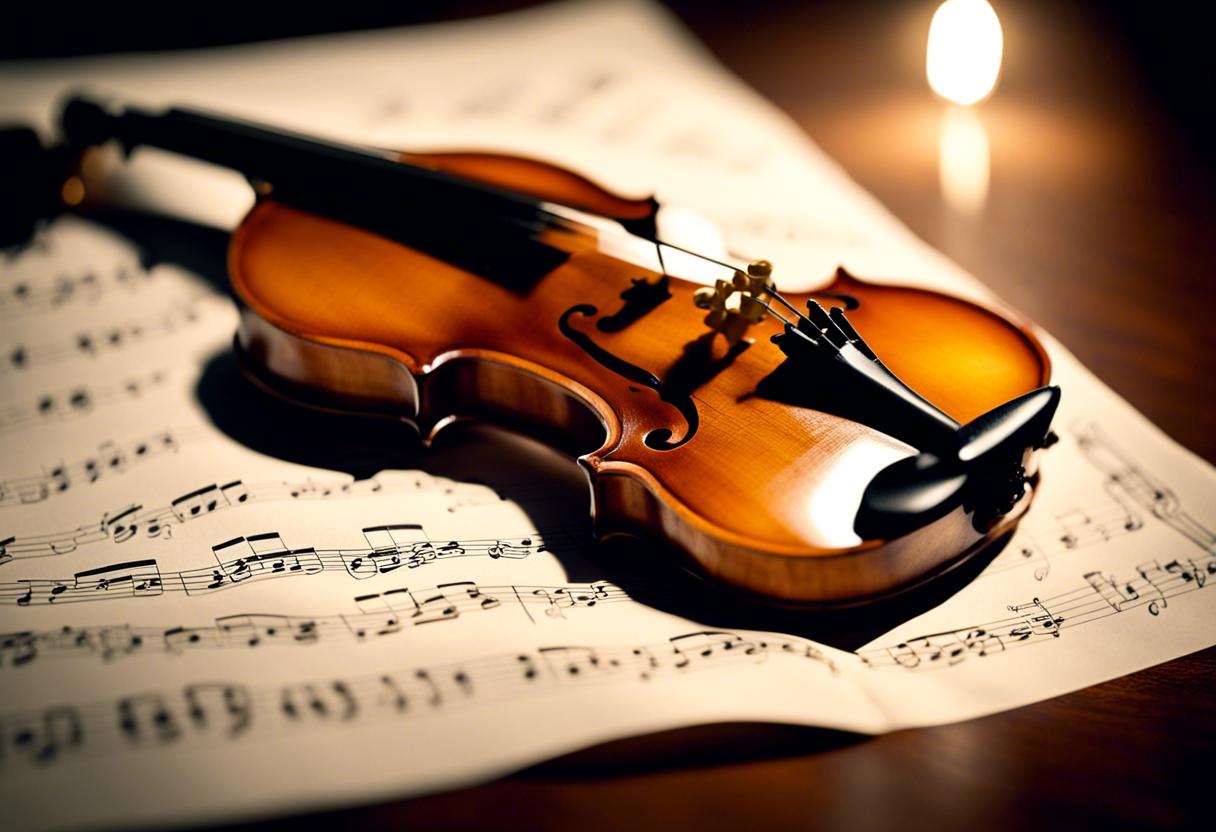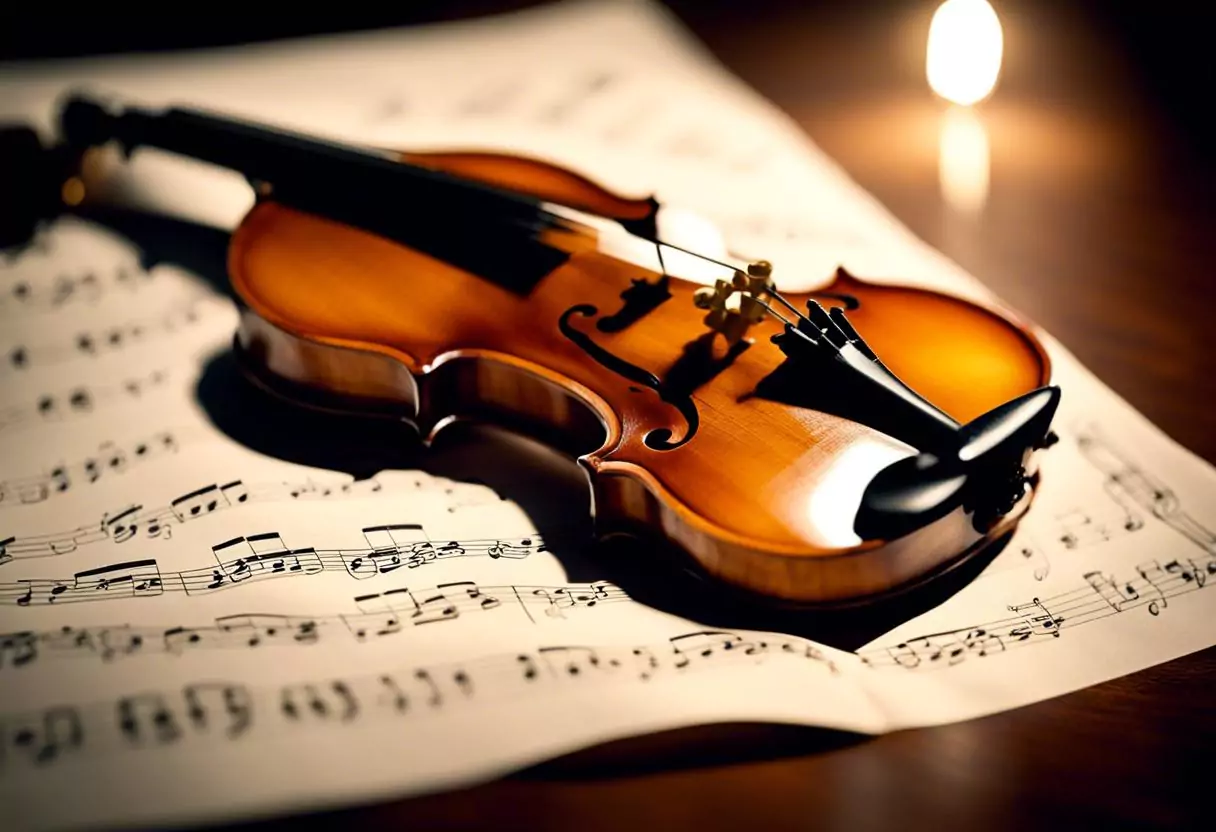

Mari Samuelsen’s earliest memories are a mix of nappy changes and violin practices. “I was likely strumming the violin while still in nappies,” says the admired Norwegian violinist. The musician smiles as she notes the importance of an early start in mastering the instrument, as it matures alongside the player.
Mari adds that the archetype of a musical child prodigy, disciplined and entirely engrossed in their art, isn’t entirely off the mark. She suggests that this narrative often colours our perception of classical musicians, picturing them as virtuosos who hone their skills from a very tender age.
Identified primarily as a non-conformist in the classical music community, Samuelsen has been trained by some of the best, including time spent at the Barratt Due Institute of Music in Oslo and Zurich University of the Arts. However, she confesses to never feeling completely comfortable in the somewhat restrained world of classical music.
An outcome of her studies in Switzerland was a life-altering realization: Samuelsen couldn’t envision herself anchored in the past for her entire musical journey. She believed that music should evolve and decided to concentrate on pieces from the 20th and 21st centuries, a resolve that will be expressed in her upcoming performances in Ireland this month. She will perform works by Estonian composer Arvo Pärt, Berlin-based electronic musician Nils Frahm, and the late Icelandic composer Jóhann Jóhannsson. These compositions will also appear on her upcoming album, ‘Life.’
Samuelsen shares that she was always the one to break away from the norm in her class. Rather than following the conventional path, she chose to explore different music styles and work with unique musicians. Her unconventional approach and diverse musical taste led her to become the standout in her class of classical musicians.
Then she adds, “Our mother dabbled in playing the piano, although she wasn’t a professional. Her idea of engaging us was similar to giving a football to a kid – she handed us musical instruments instead.”
During her Irish tour, Samuelsen, known for exuding magnetic energy on stage, will perform compositions by Max Richter, a German-British maestro. Both shared the stage at the 2023 All Together Now festival in Waterford, where they presented a one-of-a-kind arrangement of Vivaldi’s Four Seasons. The experience was nothing short of memorable with Samuelsen recalling a broken string incident, and the unrivalled decibel level that their performance generated.
She holds deep admiration for Richter’s revival of the Four Seasons, brandishing it ‘Recomposed’. Samuelsen believes it resonates with Vivaldi’s spirit while embracing modern musical interpretation. She eagerly anticipates performing it again at the Kilkenny Arts Festival on August 18th, accompanied by the RTÉ Concert Orchestra.
Richter’s reworking fits well with her musical style. She accredits him with giving the well-known and often overplayed tune a ‘fresh’ and modern facelift, making it relevant and appealing to contemporary audiences.
Samuelsen’s life harks back to a picturesque childhood tale. Raised amidst the rustic charm of Norway by free-spirited parents, her passion for music was gently cultivated without any undue pressure for perfection. She shared a close and nurturing bond with her older brother, Håkon, who is an acclaimed cellist himself. Their familial relationship infused with their mutual passion for classical music, created a unique bond as they grew in the world of elite classical music.
As siblings, they passed their formative years immersed in the tranquil Norwegian countryside, building an intricate symphony of notes together. The presence of another person immersed in the world of music within the same household made their musical journey feel like a game of fathomless complexity and deep significance.
Like any pair of siblings, there was a sense of competition in their relationship, but they were always lending each other support. “We ignited each other’s passions. If there was a hint of rivalry, it was of the inspirational sort.”
Their upbringing wasn’t marked by a strong classical music influence, Samuelsen reveals. “Our father managed the family farm and a couple of agribusinesses. Our mother had dabbled with piano playing, but nothing professional. It was as if she handed us a musical instrument instead of a football. We weren’t overly burdened with expectation to become Mozarts.”
Both she and her brother shared a common desire to experience and present classical music as a contemporary art format. Their shared passion led them to a collaboration with the prominent film score composer, James Horner, known for composing the song, My Heart Will Go On, from the Titanic movie. However, Horner tragically passed in a plane crash in 2015, aged 61. Before his untimely demise, in November 2014, the siblings had worked with him in the Pas de Deux concerto, which was his first classical composition since the 1980s.
“We became acquainted around 2009-2010, nearly five years before his accidental death. We quickly got on well and met frequently. He was an extraordinary, unpretentious, and industrious individual. I felt he enjoyed composing a piece for us, as it was a respite from the constraints of composing for films under directors’ instructions. This was his liberating space. I’m incredibly thankful to have known him in his last years. Reflecting on his early career, his explorative and novel approach was evident. It makes for an intriguing auditory journey, tracing his evolution from early beginnings to developing his unique soundscape.”
Furthermore, she’s planning on performing Metamorphosis II, a mesmerizing composition by Philip Glass, one of the pioneers of contemporary minimalism, in Kilkenny.
“Philip Glass’s struggles to break into the classical music sphere with his unique compositions have indeed been formidable; acceptance was not easy to come by. When you listen to Philip Glass, you’re transported to a different realm. It gives me a sense of enjoyable liberation, resonating with me. Explaining why is challenging – creating potent minimalist music is a difficult task. Many have attempted and failed to reach the mark. It’s simply not sufficient.”
Glass is viewed by Samuelsen as a comparable rebel, notwithstanding his conflictive image especially amongst those struggling for validation early in their careers. Indeed, during the ’70s, he is known to have survived by running a furniture-moving enterprise with his co-composer, Steve Reich.
“The journey of Philip Glass towards becoming a part of the fundamental classical music sphere has been anything but easy. There had been countless occasions where he was left to struggle for acceptance. His violin concerto often faces rejection even from some of the most professional orchestras. After experiencing such disapproval for all these years, it is bound to take a toll. But, it didn’t deter him; he kept surging ahead. His perseverance has taught me humility. I haven’t connected with him on a personal level, yet his ability to create mesmerizing music now, even at the brink of 90, baffles me.”
The act of performing Glass amazes Samuelsen due to the complexity of his music- it constantly repeats itself, albeit with minor modifications. “It is tremendously complicated. His violin concerto is – pardon my audacity – damn hard.”
When inquired about Tár, the film featuring Cate Blanchett as a conductor, Samuelsen chuckles, stating that she’s frequently asked about it.
“Despite several inquiries, I haven’t watched it yet. I am a huge fan of Cate Blanchett, but I am slightly hesitant to watch films focusing on conductors and violinists. I receive mixed reviews about whether or not to watch it.”
Blanchett’s character, Lydia Tár, is known for her prickly personality and her refusal to mix well with others, which contrasts Samuelsen’s warm disposition. As a performer, she conveys her talent lightly, all the while embracing the immense task of making classical music enjoyable and comprehensible. “My aspiration has always been to explore music and approach a different audience. It is the key driving force behind my actions.”
Samuelsen is set to perform at Dublin’s National Concert Hall on Friday, August 16th, followed by her performances at the Kilkenny Arts Festival on Saturday and Sunday, August 17th and 18th respectively. Her album Life sees a release on Friday, August 23rd.